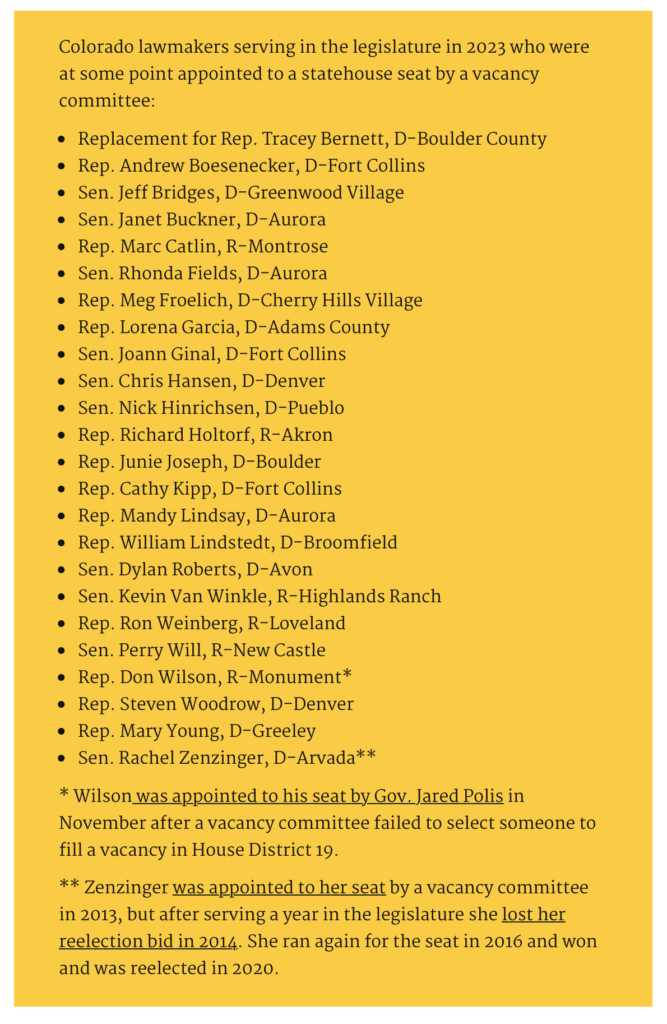More than a quarter of the state legislature are lawmakers who were appointed by a party vacancy committee rather than the voters in their district whom they are supposed to represent.
The Colorado Sun first wrote about the trend in January and the Denver Post picked up on it this week with the appointment of yet another progressive Democrat to replace a House member resigning before their term expired.
The Post neglected to mention whether this very undemocratic way of electing lawmakers has become a habit of one party or another, so we did the math, and the problem definitely leans left with 77%.
Out of Colorado’s 100 seats in the state House and Senate, 20 Democrats and six Republicans were appointed by vacancy committees – seven of those were in the last year.
The Colorado Sun printed this handy chart in January, and since then at least two additional House Democrats have been replaced by vacancy committees.

The Sun perfectly describes these vacancy committees as a “side door into the Capitol that bypasses the normal election process and grants enormous power to partisan panels that can be as small as a few dozen people.”
And that’s problematic.
Enormous power by one of those partisan panels was recently granted to Tim Hernández, a teacher too radical even for Denver Public Schools, who has called for revolution against whiteness in America. He was appointed several weeks ago to fill the House seat vacated by Serena Gonzales-Gutierrez, who ran and won a Denver City Council seat before her term expired.
This week, Tonty “Manny” Rutinel was appointed to House District 32 in Adams County to replace Rep. Dafna Michaelson Jenet, who resigned to take a job with Denver Mayor Mike Johnston.
Rutinel used to be a lawyer for a radical environmental group, EarthJustice, now he runs a non-profit sounding corporation that sells carbon credits, a dubious practice.
He also has a flair for the dramatic in describing the basic job of a representative of the people.
From Colorado Politics:
Rutinel said he is infuriated by poverty, with so many people living paycheck to paycheck, including in his own family. He said economic anxiety makes him mad and that he will be a voice for those who have experienced poverty first hand.
He also said his work style is collaborative, calling himself a “productivity guru” who will keep people up to date and to be a listener first.
The process of electing lawmakers by a committee of party activists raises legitimate concerns about cronyism and backroom dealmaking.
Colorado State University political science professor Robert Duffy told the Denver Post that vacancy committees are comprised of party activists who aren’t necessarily representative of the district they are chosen to serve.
Offsetting the committee system’s speed, critics say, are the costs of reduced transparency, limited public vetting and narrow voter inclusion. There also are questions, sometimes, about appointed lawmakers’ ability to represent their new constituents.
With so many Democrats choosing to abandon their seats rather than fill the term to which they were elected, voters should probably elicit commitments from future candidates to finish the jobs to which they are elected.
And just so Republicans don’t get any similar ideas, GOP voters might want to do the same.
